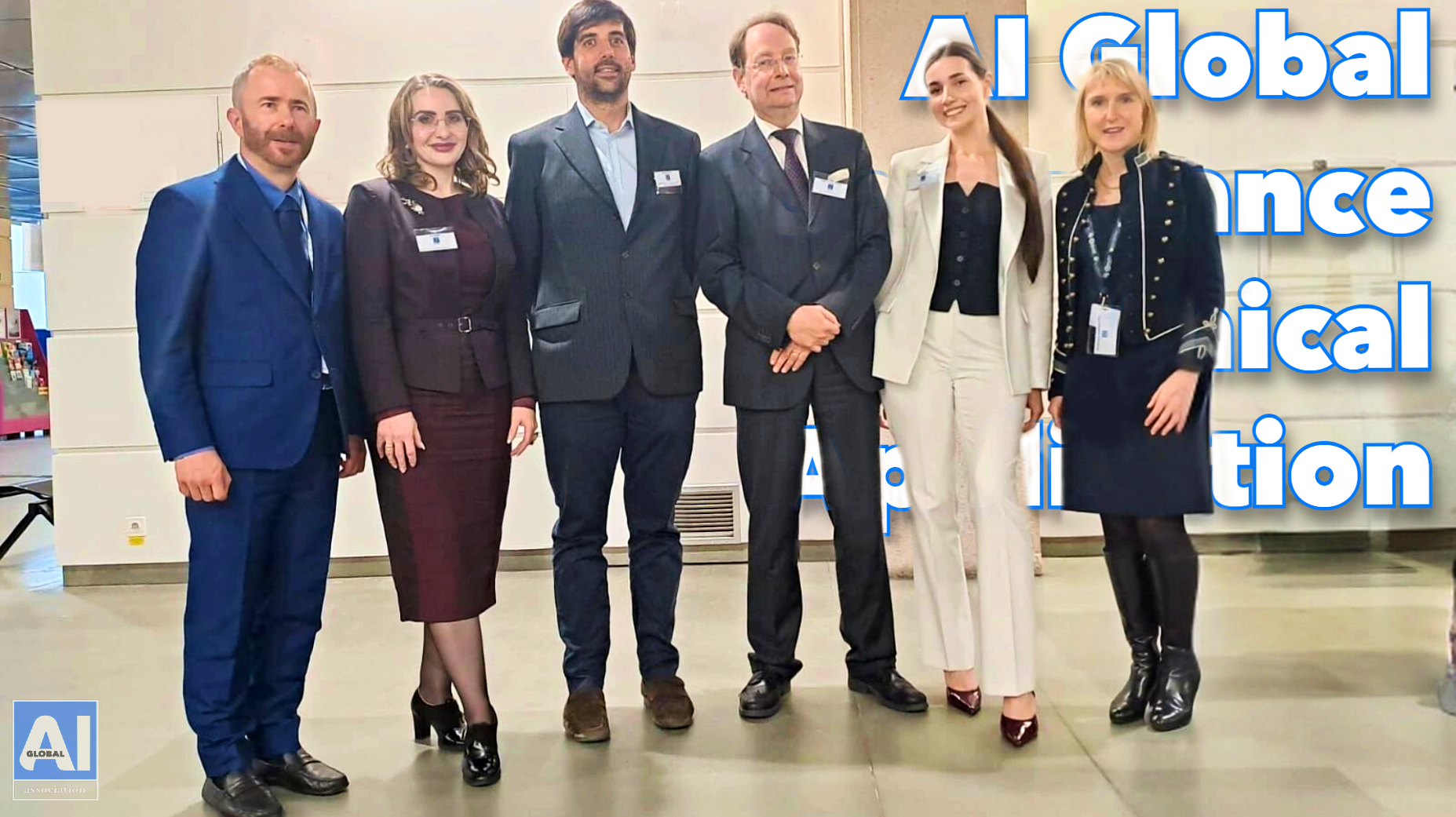At the University of Geneva, we had the privilege on May 29th of hosting a captivating discussion on the critical topic of artificial intelligence (AI) and ethics. The event was a resounding success, thanks to the insightful contributions of our esteemed speakers and the engaged participation of our audience.
We are truly grateful to everyone who made this event possible and helped advance our understanding of this vital issue. The insights shared have deepened our collective knowledge and strengthened our commitment to ensuring the ethical development of AI technologies.
Honoring Our Remarkable Speakers
The depth and breadth of expertise on display at our event was truly remarkable. We were honored to have the following luminaries join us for this thought-provoking discussion:
Kai Zenner
Kai Zenner provided invaluable insights on the recently ratified AI Act by the European Parliament. His deep understanding of the regulatory landscape and its implications for the future of AI was both enlightening and inspiring.
Caroline Robson
Caroline Robson, a renowned expert in the field of AI ethics, shared her vast knowledge and practical experience in navigating the complex ethical challenges that arise from the rapid advancement of AI. Her perspectives challenged us to think critically about the societal impact of these technologies.
Giuseppe Ugazio
Giuseppe Ugazio’s presentation on the philosophical and moral considerations surrounding AI development was both thought-provoking and compelling. His ability to seamlessly blend theory and practice left a lasting impression on all in attendance.
Ilona Maklakova
Ilona Maklakova’s insights on the intersection of AI, human rights, and social justice were truly eye-opening. Her dedication to ensuring that AI systems are designed and deployed in a way that respects and upholds fundamental human rights was both admirable and essential.
Ruggero Huesler
Ruggero Huesler’s expertise in the field of AI safety and the mitigation of existential risks provided a crucial perspective on the long-term implications of these technologies. His forward-thinking approach challenged us to consider the broader societal and global ramifications of AI development.
Jean-Marc Seigneur
Our event was expertly moderated by Jean-Marc Seigneur, whose skillful facilitation and insightful questions helped guide the discussion and ensure that all voices were heard.
Acknowledging Our Sponsors
Before we proceed further, we would like to express our heartfelt gratitude to our sponsors who played a pivotal role in making this event a success. Without their generous support, this gathering would not have been possible.
Our sponsors provided not only financial assistance but also demonstrated their commitment to advancing discussions on AI ethics. Their contribution helped create an environment where ideas could flourish, perspectives could be shared, and knowledge could be disseminated.
We extend our sincere thanks to the University of Geneva – CAS Blockchain and the Finance Research Institute, Aldebaran Consulting & Advisory, Synergetics, LegalNodes and Little Moon for their unwavering support and dedication to fostering dialogue around ethical AI development. Your partnership is invaluable, and we are deeply appreciative of your continued collaboration.
The Importance of Ethical AI Development
The discussions at our event underscored the critical importance of ensuring that the development and deployment of AI technologies are guided by strong ethical principles. As these technologies become increasingly pervasive in our daily lives, it is essential that we proactively address the potential risks and challenges they pose.
Some of the key ethical considerations that were highlighted include:
- Algorithmic Bias and Fairness: AI systems can perpetuate and amplify existing societal biases, leading to unfair and discriminatory outcomes. Ensuring that these systems are designed and implemented with fairness and inclusivity in mind is crucial.
- Privacy and Data Protection: The vast amounts of data required to train AI models raise significant concerns about individual privacy and the potential for misuse or exploitation of personal information. Robust data governance frameworks and user privacy safeguards are essential.
- Transparency and Accountability: As AI systems become more complex and opaque, it is critical to maintain transparency in their decision-making processes and establish clear lines of accountability for their actions and impacts.
- Human-Centric Design: AI should be developed and deployed in a way that prioritizes human well-being, empowerment, and agency. The technology should complement and enhance human capabilities, rather than replace or diminish them.
- Societal Impact and Equity: The widespread adoption of AI has the potential to exacerbate existing societal inequalities and create new forms of marginalization. Ensuring that the benefits of AI are equitably distributed and that its negative impacts are mitigated is a pressing concern.
Advancing the Ethical Development of AI
The insightful discussions at our event have reinforced our commitment to advancing the ethical development of AI. We are determined to continue our mission of ensuring that these transformative technologies align with fundamental ethical principles and serve the greater good of humanity.
To this end, we will be taking the following actions:
- Fostering Multidisciplinary Collaboration: We will continue to convene diverse stakeholders, including policymakers, researchers, industry leaders, and civil society organizations, to engage in ongoing dialogues and collaborative efforts to address the ethical challenges posed by AI.
- Promoting Ethical AI Governance: We will work to support the development and implementation of robust ethical frameworks, guidelines, and regulations that guide the design, deployment, and oversight of AI systems. This includes advocating for the AI Act and other policy initiatives that prioritize ethical considerations.
- Enhancing Public Understanding: Through educational initiatives, public outreach, and knowledge-sharing, we will strive to increase public awareness and understanding of the ethical implications of AI, empowering citizens to engage in informed discussions and decision-making processes.
- Investing in Ethical AI Research: We will continue to support and fund research that explores the ethical dimensions of AI, including the development of new methodologies, tools, and best practices for ensuring the responsible development and use of these technologies.
- Fostering Ethical AI Talent: By nurturing the next generation of AI practitioners, researchers, and leaders, we will cultivate a workforce that is deeply committed to the ethical principles that should underpin the development and deployment of AI.
The success of our event on AI and ethics is a testament to the unwavering commitment of our community to ensuring that the transformative power of AI is harnessed in a way that aligns with our highest ethical ideals. We are grateful to our esteemed speakers, our engaged audience, and all who contributed to making this discussion a resounding success.
As we move forward, we remain steadfast in our mission to advance the ethical development of AI. By fostering collaborative efforts, promoting robust governance frameworks, enhancing public understanding, and investing in ethical research and talent, we are confident that we can build a future where AI technology serves the greater good of humanity.
Together, let us continue this vital journey, guided by our shared values and a deep commitment to a world where AI and ethics go hand in hand.



